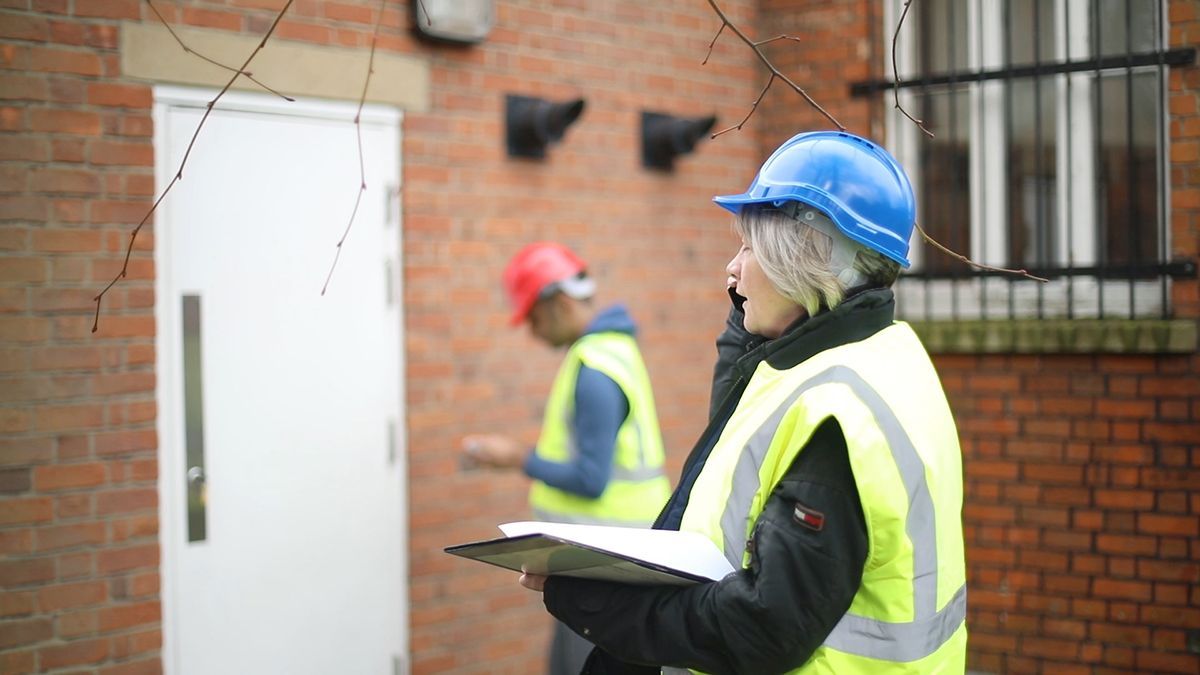Another PCN prosecution
Roderick Morton • 27 April 2021
Russnak-Johnston vs Reading Magistrates and Royal Borough of Windsor and Maidenhead
[2021] EWHC 112 (Admin)
PCN prosecutions are like buses it seems. You wait ages then two come along at once!
Hot on the heels of our note in January’s NAPE newsletter of a PCN prosecution in Ealing comes another PCN prosecution case, this time in Maidenhead. The High Court was asked to consider the nature of offences relating to failure to complete PCNs fully and providing false or misleading information.
The claimant operated a livery stables on Green Belt land near Maidenhead and may have lived in a caravan on site. The site had planning permission for a limited number of non-commercial stables. Information received by the council suggested the operation was more extensive than authorised. The council issued two PCNs in 2016 asking for information and documents. Notably, the council asked for copies of any commercial livery agreements and asked questions about residential use. Limited responses were received to both PCNs. The council served an enforcement notice in January 2017. The day before the public inquiry in February 2018, the claimant served a bundle of late evidence (including commercial livery agreements) which caused the council to have to withdraw the notice.
In June 2018, the Council prosecuted the claimant for failing to provide the information requested in the PCNs and for making false statements within the PCN responses.
S171C(2) allows a council to serve a PCN requesting “such information…as may be specified in the notice”. Failure to comply with any requirement of a PCN is an offence under s171D(1) TCPA 1990. Provision of false or misleading particulars in response to a PCN is an offence under s171D(5). Both offences are “summary only” offences, meaning that they can only be prosecuted in the Magistrates Court and the summons must be brought within 6 months of the date of the offence.
The prosecutions were brought more than 6 months after the date of the PCN responses but less than 6 months after the date on which the council became aware that the responses were false or incomplete (ie the day before the public inquiry). The claimant said that the council brought the prosecutions too late. The Magistrates disagreed. They held that the 6 months only started when the council became aware of the falsehoods.
The claimant also said that the livery agreements were documents and that the power to request information under the PCN did not include documents as such, only “information”; as such it could not be an offence to fail to provide documents. The Magistrates disagreed.
The case was referred to the High Court on these issues.
The High Court held that the “information” which could be requested under a PCN included any documents. After a wide-ranging review of planning and analogous UK legislation, including the Carnwath Report and the s171 regime , the court concluded that, since the point of a PCN is to obtain information as to the use of the land at an early stage of an investigation, taking a restrictive view as to the meaning of “information” was not justified.
Turning to the issue of time limits, the High Court concluded that the offence under s171D(1) (ie failure to comply with a requirement of the PCN) was a continuing offence, running from the date on which a response was required until such time as a full response was provided. As the claimant had not complied with the PCN requirement to provide documents until the day before the inquiry, the Council had issued the summons in time.
By contrast, the requirement not to give false or misleading particulars in any response was a “once and for all” requirement. As with other summary offences, it runs strictly from the date of the offence (in this case, the date of the PCN response) and not from the date the council finds out about the falsehood. As such, the council was out of time on those offences.
It is easy to forget the need for speed when it comes to PCN prosecutions. The 6 month time limit is strict. There are other areas of law where primary legislation has extended the 6 month limit until the date the enforcing authority had knowledge of the offence. Not so in planning enforcement.
However, this case is good authority that, if the offence can be framed as a failure to provide information, the fact that it is a continuing offence does give some leeway to prosecute even when apparently out of time.
There remains an interesting question as to whether the provision of false information (strict 6 month limit) could also be framed as a failure to provide the correct information (continuing offence).
The case is also helpful in emphasising the broad nature of the information that can be demanded under the PCN. That said, the information requested must still relate to the suspected contravention and should not amount to a fishing expedition.

Given its portrayal of the planning system so far, it is almost a given that season 3 of Clarkson’s Farm will not accurately present the detail of the Diddly Squat appeal decision. Here is our take. The decision is here. In summary, the LPA won almost all of the enforcement points. But simply being Jeremy Clarkson is apparently a material consideration which alters the planning balance! While he is popular, his celebrity is such that his farm shop will create significant problems beyond those of an ordinary farm shop and the inspector decided that these are problems which have already been accepted in granting his existing permission. Fewer of the harms to the AONB can therefore be attributed to the additional elements of the use. And these harms are outweighed by the economic benefits, benefits which are a result of his celebrity. So permission was granted for his farm shop and café and the associated parking and toilets. Clarkson’s popularity will be re-assessed in 3 years as the permission is time limited. Perhaps the inspector knows something we don’t. As viewers will know, Clarkson’s Farm operates in open countryside in an AONB. As well as agriculture, it has diversified to include a farm shop and a café in a lambing barn. The business tried to open a restaurant in a converted barn located some distance from the shop. The site is obviously used as a filming location. The business has proved popular and it now has significant parking and highway problems. The farm shop (with limited parking) has permission, the construction of the lambing barn (but not its use) has permission and there is permission for limited filming. The council enforced against the material change of use of the land to a mixed agricultural and leisure attraction use, comprising café, restaurant, gift/farm shop, parking and lavatory facilities. The notice was appealed. The appellant also sought (and was refused) permission for additional parking, access, storage and landscaping. This appeal was heard alongside the enforcement appeal. The inspector dealt first with the planning unit. The appellant alleged that there were three separate planning units (shop, café, restaurant), with each having a separate primary use. The council had enforced against a single unit in a mixed use. The inspector took into account that the shop/café was in a different ownership to the farm and that it had its own permission. But its activities clearly spilled out of the permitted area, extending to the proposed restaurant and the wider parking areas. The restaurant used the same parking as the shop. These were fenced/walled off from the remainder of the farm. He concluded that there was a single planning unit. As for the use of that planning unit, the inspector took issue with several items listed by the council. “Gift shop” was too ambiguous; a shop is a shop. Similarly, while visitors no doubt came for the experience, the business was not a “leisure attraction”. A leisure attraction required, said the inspector, something which the customer might be expected to pay for. There was no entrance fee here, just a shop and café. (It appears that the inspector was also concerned that any permission for a “leisure attraction” would create a very wide lawful use.) Nevertheless, there were several primary uses in a single unit so the development was a mixed use, in this case a “mixed use comprising agriculture, café, restaurant, farm shop, parking, lavatory facilities.” This put paid to the ground (b) and (c) challenges. The challenge was that the restaurant was a separate planning unit. As it was in the curtilage of the lawful farm shop, the appellant said that Class R permitted a change of use to a flexible use including a restaurant. In the light of his conclusion on the planning unit, the inspector rejected this. He said he would have rejected the Class R argument anyway as the restaurant was not clearly within the curtilage of the farm shop. The remainder of the uses cited in the notice were also challenged on the grounds that they were ancillary to the lawful farm shop use and not primary uses. The inspector concluded that, as the restaurant resulted in a mixed use, there had been a material change of use so it was irrelevant whether the other items were ancillary. As an aside, viewers of the series will recall the scripted glee with which the appellant came up with the “PD loophole” for his restaurant. It is fitting, therefore, that it was the restaurant which was the primary reason the breach was upheld. The inspector nevertheless looked at the extent to which the various alleged ancillary elements (other than the restaurant) were part of the lawful use prior to the breach. This was relevant to the fallback but also to what the extent of the material change of use truly was. He identified that the question was whether any of the elements represented a change in the character of the use. The inspector found that the level or vehicle traffic and parking went far beyond that for which permission had been given. And that the lambing shed was clearly not “by any stretch of reasonableness” being used for the purpose for which it was given permission. Even the toilet facilities went beyond what would be expected for the permitted farm shop. This was not intensification, it was a material change in the character of the use. The LPA even won the merits arguments on ground (a). The number of visitors, the traffic and parking problems, the outdoor seating, catering van and toilets clearly had an adverse effect on the AONB. The parking and landscaping proposed under the s78 application would have a similar effect. This had great weight. In the end though, permission was granted for the mixed use, including the use of the lambing shed as a café and the enforced against parking and toilets. Permission was granted under the s78 appeal for altered parking, storage and landscaping. Only the restaurant was refused. The inspector found that the parking would alleviate the current parking situation and highway safety even though it would not provide a complete solution. He accepted that a number of local suppliers benefited from trading arrangements with the shop and that the shop contributed to the local economy. He accepted that diversification was to be supported. These considerations also had great weight. Key to the decision, though, was the fact that permission had been granted, not just for a farm shop, but for a celebrity’s farm shop. Even if there was no café or restaurant, the popularity of the appellant was such that people would continue to visit the shop in numbers. This reduced to moderate the harm to the AONB caused by the new elements of the use because the permitted use already resulted in significant harm. The appellant’s celebrity might wane. In which case, the weight of the considerations in favour of the development would wane. The permission granted was therefore time limited to 36 months. The decision is well reasoned and fairly logical. The inspector did not say that the character of the use already permitted varied with the identity of the user. But the result seems to imply that the harms associated with the use could vary and that the LPA had accepted them all in granting permission. Yet it is difficult to think that the LPA could successfully have imposed conditions on the farm shop based on the identity of the applicant. The result is therefore troubling.























